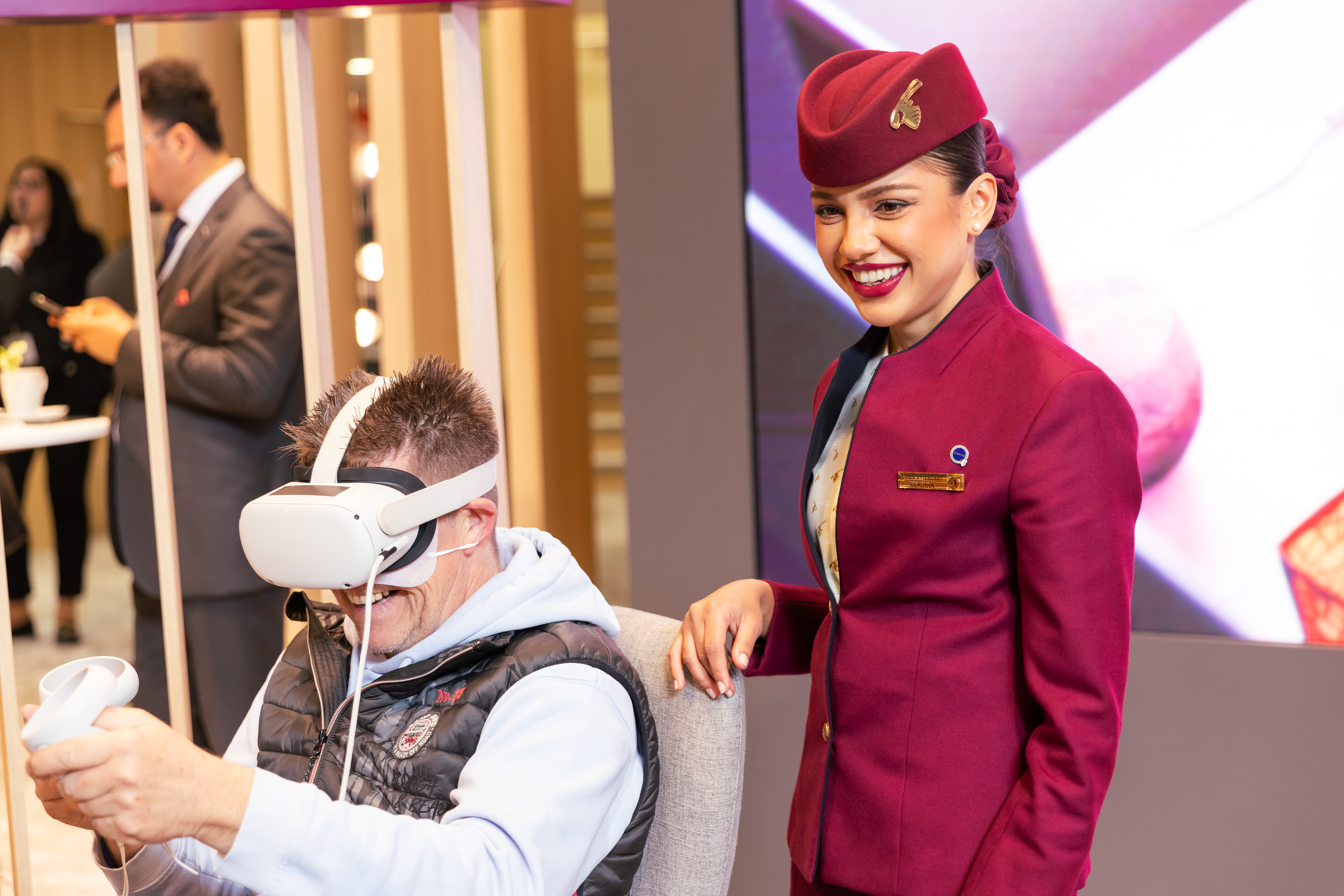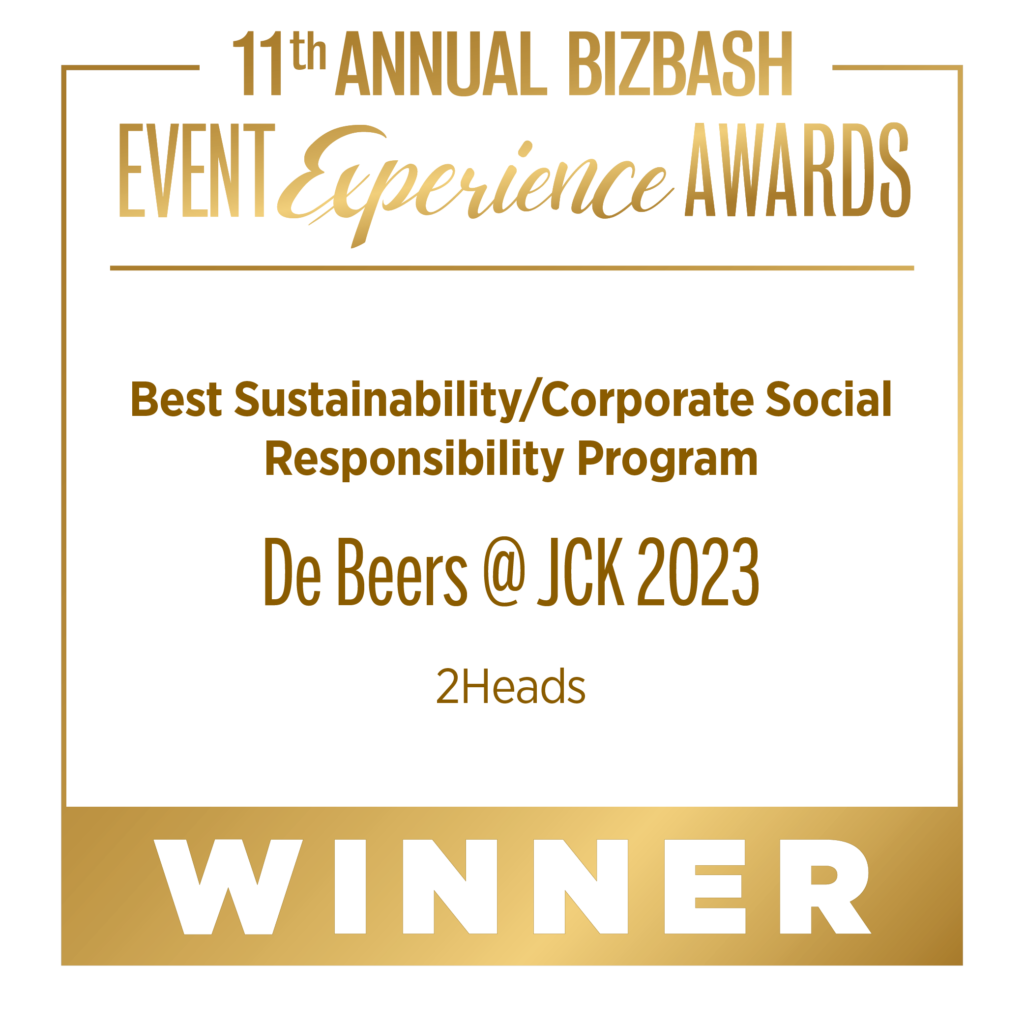Events are Everything
James Simpkins | Global CGO
In the fast-paced, digitally saturated world we live in, brands are constantly searching for innovative ways to capture the attention and loyalty of their target audiences. Traditional marketing methods, while still valuable, are increasingly overshadowed by the power of experiential marketing. Experiential events have emerged as the most important tool in a brand’s arsenal, transforming how companies connect with their customers, employees, and stakeholders.
The Experiential Marketing Summit (EMS) held in Las Vegas, put events front and centre of the agenda this year. With a multitude of topics covered by brand-side marketers and agency leaders, the scene was set to address industry challenges, seek solutions, and drive experiential marketing into the next era. Here are my key takeaways:
Exhibits are evolving to become more experiential, immersive, and innovative to truly captivate attendees. Traditional exhibits often lack engagement, but experiential ones encourage interaction, experimentation, and exploration, transforming passive visits into active engagements. This not only enhances enjoyment but also ensures lasting memories. Immersive exhibits may utilise AR, VR, and interactive installations to surround attendees in captivating environments, transporting them to alternate realities and significantly enhancing brand experiences. Additionally, innovative exhibits demonstrate a brand’s dedication to cutting-edge technology and forward-thinking strategies. By incorporating immersive interactions, brands can create a captivating wow factor that leaves a lasting impression on attendees, showcasing their commitment to innovation.
The future of experiential exhibit spaces is characterised by immersive technologies like VR and AR, personalised engagements, and seamless transitions between physical and digital realms. Best practices include designing cohesive narratives, encouraging active participation through interactive installations and gamification and leveraging social media for extended reach. Measuring ROI involves traditional metrics like foot fall as well as social media sharing and post-event surveys to assess brand perception and recall. Ultimately, success lies in creating memorable experiences that forge deep connections with audiences while delivering tangible value to brands.
Experiential marketing often faces misconceptions that it’s solely about flashy events or stunts, but its core lies in creating immersive brand experiences. Best practices emphasise authenticity, relevance, and emotional resonance to forge genuine connections with audiences. By focusing on understanding customer interests, preferences, and pain points, brands can craft memorable experiences that resonate on a personal level, nurturing lasting relationships and loyalty. Integrating storytelling, interactive elements, and sensory engagement can further enhance the impact, ensuring that each instance leaves a lasting impression and encourages a strong bond between brand and audience.
At the heart of crafting captivating technology conferences is the ability to drive audience engagement through innovative experiences. By seamlessly integrating interactive sessions, hands-on sessions, and cutting-edge demos, these events transcend traditional boundaries, sparking curiosity and collaboration among attendees. Whether through immersive VR showcases, live competitions, or dynamic panel discussions featuring industry trailblazers, the aim is to ignite inspiration and collaboration, transforming each conference into an unforgettable journey of discovery and advancement in the ever evolving world of technology.
Embracing a bold stance on event sustainability demands a concerted effort to minimise environmental footprint. This entails implementing practices such as waste reduction, carbon offsetting, and sourcing locally to reduce transportation emissions. By prioritising eco-conscious decisions in event planning, we not only demonstrate our commitment to environmental stewardship but also inspire others to follow suit, adopting a culture of sustainability within the events industry.
Experiential marketing continues to evolve, facing several pain points such as audience engagement, ROI measurement, budget constraints, and scalability. To address these challenges, future strategies must embrace technological advancements like AR/VR and AI to create immersive, personalised experiences. Additionally, hybrid events that blend physical and digital elements figure in reaching wider audiences. Sustainability will also play a crucial role, as reducing exhibit waste is increasingly important. This can be achieved by using eco-friendly materials, digital alternatives to printed materials, and robust waste management practices, including recycling and repurposing. Collaborating with suppliers who prioritise green practices further supports sustainability efforts. By tackling these pain points and integrating innovative strategies, businesses can create impactful and environmentally responsible experiential marketing campaigns.
Organisations can drive innovation by cultivating a culture that values and encourages creativity, risk-taking, and collaboration. Providing employees with the autonomy to explore ideas, experiment with new approaches, and learn from failures develops an environment where innovation can thrive. Additionally, investing in continuous learning and development opportunities, promoting diverse teams, and creating channels for open communication and idea-sharing can further empower individuals to drive innovation within the organisation.
Today, companies navigate the delicate balance of crafting cohesive narratives across diverse marketing platforms while maintaining the authenticity integral to their brands. Through careful alignment of messaging, visuals, and values, they weave narratives that resonate with audiences across channels, from social media to traditional advertising. By prioritising transparency and sincerity, they create trust and connection, ensuring that every story they tell reflects the essence of their brand, developing lasting relationships with customers in an increasingly crowded marketplace.
Agency leaders can grow team development and strategic partnerships by nurturing a culture of collaboration and innovation, encouraging open communication, and providing opportunities for skill enhancement and leadership development. By aligning team goals with the agency’s overarching vision and values, leaders can inspire a sense of purpose and commitment among team members. Additionally, forging strategic partnerships with complementary organisations can expand market reach, enhance capabilities, and drive growth through shared resources and expertise, ultimately positioning the agency for long-term success in a competitive landscape.
Harnessing theatrical creativity for more inclusive and engaging events, starts by embracing diversity in casting, themes, and perspectives. Encourage collaboration among participants to co-create narratives that resonate with a wide audience. Incorporate interactive elements like immersive spaces or participatory storytelling to invite active engagement from attendees. Foster a supportive atmosphere where everyone feels valued and heard, ensuring representation both on stage and behind the scenes. By prioritising inclusivity and creativity, events can become powerful platforms for connection and understanding.
So, why are events everything?
Experiential events have become the cornerstone of modern marketing strategies. They offer unparalleled opportunities for immersive engagement, emotional connection, brand differentiation, real-time feedback, and social media amplification. Likewise, they enhance employee engagement, creating a holistic impact on the brand’s ecosystem.
As brands continue to navigate the complexities of a digitally driven market, those who invest in creating meaningful, memorable experiences will find themselves not just surviving, but thriving. The future of marketing lies in the power of experience, and those who continue to harness it will lead the way.
Events are here to stay.





